Welcome back to WHR Radio Where You Decide! 
We are pleased to announce our next special guest host, Tara Platt who will join WHR Sunday May 27 , 2012 6 PM Pacific, 9 PM Eastern time to discuss her human interest topic, Breast Cancer as well as her exciting new series “Shelf Life”. As always, we will do a full post interview follow on story about this talented actress.
Breast Cancer:
This week, our topic of conversation is Breast Cancer, a disease that has touched just about everyone in some way. We begin with a personal story from a survivor. This is Brenda’s story:
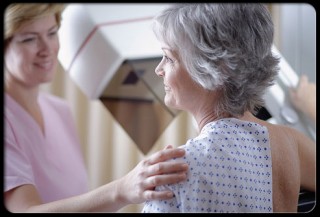 In my own mind, I became a breast cancer survivor the moment I received my diagnosis. It all began so innocently! I scheduled myself with my gynecologist for my routine annual exam and was pronounced in fine health. He recommended, as he always does, that I have a mammogram so I scheduled myself for one the next week.
In my own mind, I became a breast cancer survivor the moment I received my diagnosis. It all began so innocently! I scheduled myself with my gynecologist for my routine annual exam and was pronounced in fine health. He recommended, as he always does, that I have a mammogram so I scheduled myself for one the next week.
To my shock, a week after the mammogram I received a letter in the mail telling me that an abnormality had been detected in my x-ray and that I needed to contact my doctor at once. I did so, and he seemed surprised that anything had been detected. He said that he had not been able to feel anything during my exam. He recommended a surgeon for me to see, and within a week I was in his office. He studied my x-ray and did a very thorough breast exam. He knew where he was looking and what he was looking for, but he was unable to detect by touch any hint of an abnormality. But there it was, plain as day on my mammogram.
He scheduled me for a breast biopsy and 2 days later I had my diagnosis. I had cancer, and it was in very early stage, he said stage 0. Due to the nature of my cancer, a lumpectomy was not an option for me. The calcifications covered a large portion of my right breast tissue, and in order to remove all the cancer cells, a mastectomy would have to be done. I could not believe my ears. I was only 43! I had a mammogram only a year and a half before and there was nothing there at all, and now I was having a 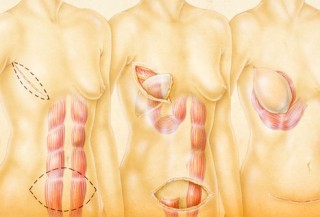 mastectomy!
mastectomy!
I chose to have an immediate breast reconstruction procedure, so I had to see another surgeon — a plastic surgeon. So it was done. On August 13, 2002, I had my right breast removed and had a TRAM flap reconstruction. It was a tough few days there, and I wondered for a short time if I had made a mistake — having 2 major surgeries at once was very difficult. But after those first few days I was very glad I had both done at the same time.
My pathology report was excellent, the cancer had not spread outside the breast tissue, the lymph nodes were clear. My oncologist recommended no further treatments. No chemotherapy, no radiation therapy, no tamoxifen, nothing.
All I had to do was recover from my surgery and pick up my life where I left off. What blessing! It is now 5 weeks from surgery and I am doing well. My body is still sore, my incisions are not healed completely, but are very much on the way. The TRAM left my abdomen much flatter and tighter, and my new breast is still quite swollen, but the shape is incredible. Within a few months when the swelling is gone I will have a completely normal looking breast to match my real left one!
 What I want anyone who reads this story to take away is this: my cancer was totally undetectable by a manual breast exam. My surgeon said I was probably a year away from having a palpable mass, but when it became palpable, it would have been enormous. My mammogram saved me from possible death, and from certain suffering through chemotherapy and radiation treatments.
What I want anyone who reads this story to take away is this: my cancer was totally undetectable by a manual breast exam. My surgeon said I was probably a year away from having a palpable mass, but when it became palpable, it would have been enormous. My mammogram saved me from possible death, and from certain suffering through chemotherapy and radiation treatments.
Because of my early diagnosis, I was spared so much. Please, if there is a woman in your life whom you love, get her to have a mammogram every year. Make it a test of love if you must. You know, “if you loved me, you’d get one”. Mammography saves lives, maybe your mother’s life, your daughter’s life, maybe even your own life. I know it saved mine!
Breast cancer, like any form of cancer is frightening. We hear horror stories of chemotherapy sessions that leave the patient weak and unable to keep food down. There is, what we perceive to be, body mutilation where body parts are removed to attempt to halt the cancer. Hair loss due to specific cancer therapy affects our appearance. In a society where good health and the appearance of health is celebrated, a disease that takes that all away is terrifying.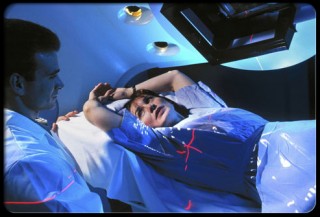
According to BreastCancer.org, we should be looking for the following symptoms:
“Initially, breast cancer may not cause any symptoms. A lump may be too small for you to feel or to cause any unusual changes you can notice on your own. Often, an abnormal area turns up on a screening mammogram (x-ray of the breast), which leads to further testing. In some cases, however, the first sign of breast cancer is a new lump or mass in the breast that you or your doctor can feel. A lump that is painless, hard, and has uneven edges is more likely to be cancer. But sometimes cancers can be tender, soft, and rounded. So it’s important to have anything unusual checked by your doctor”.
According to the American Cancer Society, any of the following unusual changes in the breast can be a symptom of breast cancer:
swelling of all or part of the breast
skin irritation or dimpling
breast pain
nipple pain or the nipple turning inward
redness, scaliness, or thickening of the nipple or breast skin
of the nipple or breast skin
a nipple discharge other than breast milk
a lump in the underarm area
These changes also can be signs of less serious conditions that are not cancerous, such as an infection or a cyst. It’s important to get any breast changes checked out promptly by a doctor.
Once diagnosed, the treatment recommended by your doctor can vary based on what type of cancer you have, what stage it is and whether or not surgery is involved. Besides surgery, the therapies recommended are:
Chemotherapy treatment uses medicine to weaken and destroy cancer cells in the body, including cells at the original cancer site and any cancer cells that may have spread to another part of the body.
Radiation therapy — also called radiotherapy — is a highly targeted, highly effective way to destroy cancer cells in the breast that may stick around after surgery. Radiation can reduce the risk of breast cancer recurrence by about 70%.
Hormonal therapy medicines treat hormone-receptor-positive breast cancers by lowering the amount of the hormone estrogen in the body and by blocking the action of estrogen on breast cancer cells. Hormonal therapy medicines can also be used to help shrink or slow the growth of advanced-stage or metastatic hormone-receptor-positive breast cancers.
Targeted cancer therapies are treatments that target specific characteristics of cancer cells, such as a protein that allows the cancer cells to grow in a rapid or abnormal way. Targeted therapies are generally less likely than chemotherapy to harm normal, healthy cells. Some targeted therapies are antibodies that work like the antibodies made naturally by our immune systems.
Complementary/holistic therapy – The goal of complementary medicine is to balance the whole person — physically, mentally, and emotionally — while conventional medicine does its work. For many people diagnosed with breast cancer, complementary medicine has helped to relieve symptoms, ease treatment side effects, and improve quality of life. Researchers are working to better understand the value and benefit of complementary medicine in breast cancer.

Breastcancer.org has created a guide to help you quickly get information about the many medicines used to treat or lower the risk of breast cancer. Not included are pain medications or medicines used to treat side effects of breast cancer medicines.
Many people with breast cancer experience some level of pain — from mild to severe, from short episodes to longer-lasting pain — because of the cancer itself, and/or as a result of treatments such as surgery, chemotherapy, radiation therapy, hormonal therapy, and other anti-cancer medications. Pain caused by the cancer itself is more common when the breast cancer has spread to other parts of the body, such as the bones. Pain or discomfort caused by treatments for breast cancer can affect anyone, though, regardless of the stage of their disease. Pain medication information can be found here; http://www.breastcancer.org/treatment/pain/meds/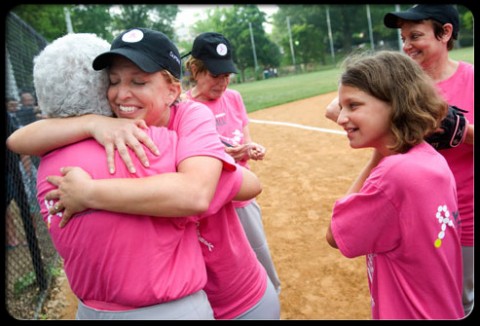
So, what can we do to help make Breast Cancer, in fact all cancers, a thing of the past? Donate to your favorite cancer charity, take part in events where you live, learn more about breast cancer so that you may be of benefit to family and friends who may be at risk. Knowledge is a powerful thing and it can help save a life.
 Thanks to Kenn for final staging of this news article and thanks to you for stopping by WormholeRiders News Agency! We hope to see you all for our interview: Tara Platt this Sunday 6 PM PST 9 PM EST!
Thanks to Kenn for final staging of this news article and thanks to you for stopping by WormholeRiders News Agency! We hope to see you all for our interview: Tara Platt this Sunday 6 PM PST 9 PM EST!
Please feel free to leave a comment here, click an icon below to share this interview with your friends, or you can visit and follow me on Twitter by clicking on my avatar to the right.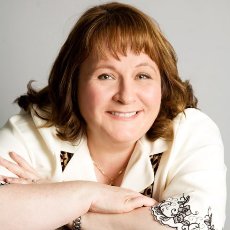
Regards,
Thank you.
ArcticGoddess1 (Patricia)
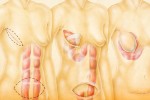
Thank you Patricia for a thoughtful article about raising awareness supporting Breast Cancer research for Ms. Tara Platt’s guest hostess on You Decide interview this Sunday May 27, 2012 6 PM PST.
Best Regards,
Kenn